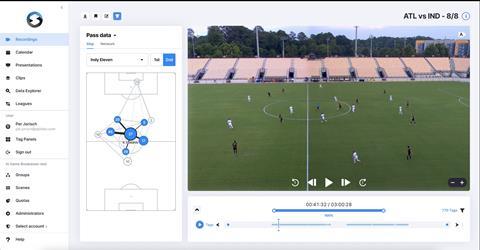Spiideo co-founder and CEO Patrik Olsson believes AI can save budgets and allow for lower-tier leagues to boost quality

Traditionally, high-quality sports broadcasts have required extensive resources - multiple camera operators, a production crew and commentators. With the most recent Premier League broadcast rights deal being signed for £6.7 billion over a four year cycle, access to elite level broadcasting has for years been out of reach of teams throughout the sporting pyramid, in turn damaging their capacity to grow and reach new audiences. However, as we have seen across almost all sectors, AI is playing a key role in automating industry processes. Whilst emulating the success of clubs like Wrexham - whose revenue increased by over 75% last year - may prove difficult, lowering the barriers of entry to high quality broadcasts will offer many leagues (and their supporters) new opportunities for growth.
AI-powered solutions are transforming the sports industry by making live broadcasting and video analysis accessible to everyone involved - from elite teams to grassroots leagues. As more organisations embrace AI, every game played can now be available live, with highlights and insights generated automatically. This approach enhances fan engagement by giving supporters greater access to the teams they follow, as well as attracting new viewers who are being exposed to the team or sport for the first time. In addition, it also democratises performance analysis, by lowering the price point and staffing costs required, enabling teams with smaller budgets to set up their own performance analysis teams. Traditionally a resource-intensive process limited to top-tier leagues, video analysis can now be conducted autonomously, providing tactical insights to coaches, players and analysts at all levels.
The implications go beyond game-day broadcasts. With every match captured, clubs, leagues and federations can access a continuous stream of data that feeds into player development, tactical planning and even scouting. Clubs like Brentford and Brighton have become famous for this “moneyball” approach to player recruitment, using data and analytics to identify talented players at affordable price points. This availability of real-time and post-match analytics adds depth for fans and professionals alike, creating a dynamic viewing experience that’s more than just entertainment - it’s a tool for growth and performance enhancement.
As more leagues adopt these technologies, fans around the world will gain access to games they previously couldn’t watch, while teams unlock new revenue streams through expanded global reach. The success of teams like Wrexham, who have used marketing to develop a devoted overseas fanbase, has opened up the debate around broadcast rights and how accessible sports fixtures should be. With other lower league teams such as Birmingham - and potentially Tranmere Rovers in recent weeks - gaining investment from high profile celebrity backers, the desire for increased access to televised matches is only likely to continue, meaning clubs and federations will need to find new ways to deliver high quality broadcast at an affordable price point. With AI, the vision of “every game, everywhere” can become a reality, breaking down geographic and financial barriers that have long constrained the sports ecosystem.

Patrik Olsson is co-founder and CEO of Spiideo








No comments yet